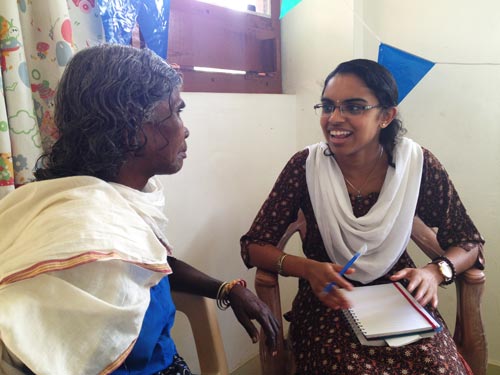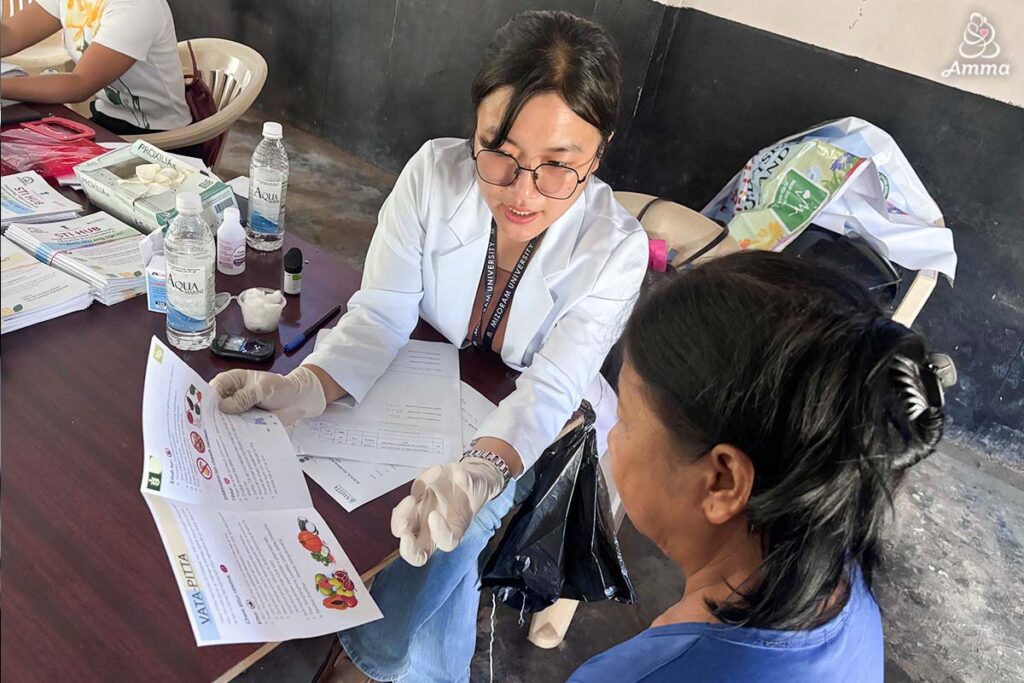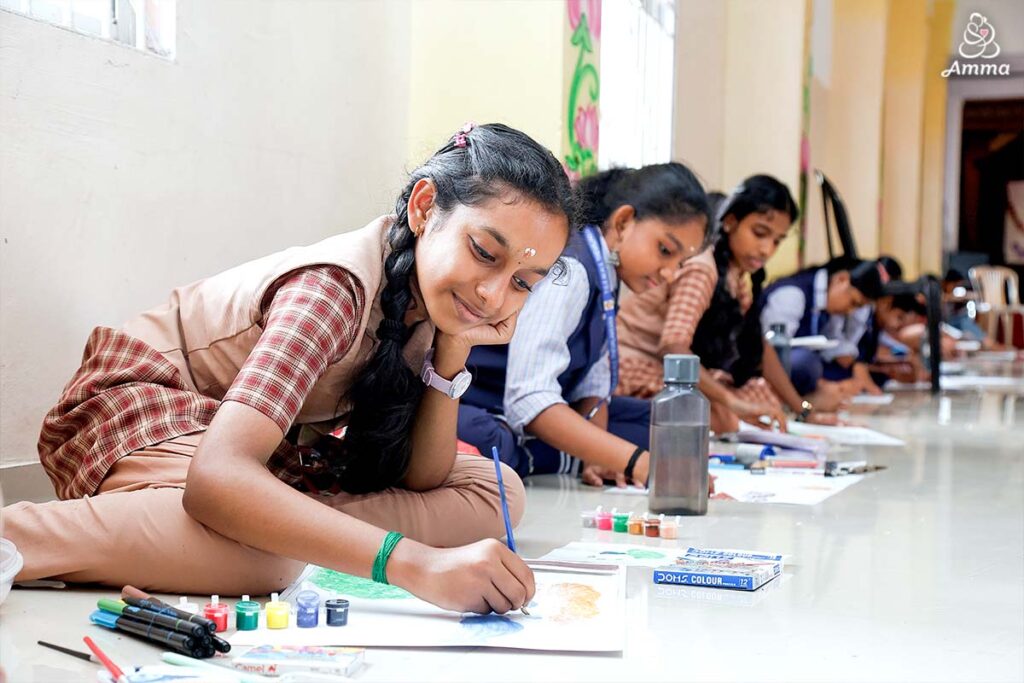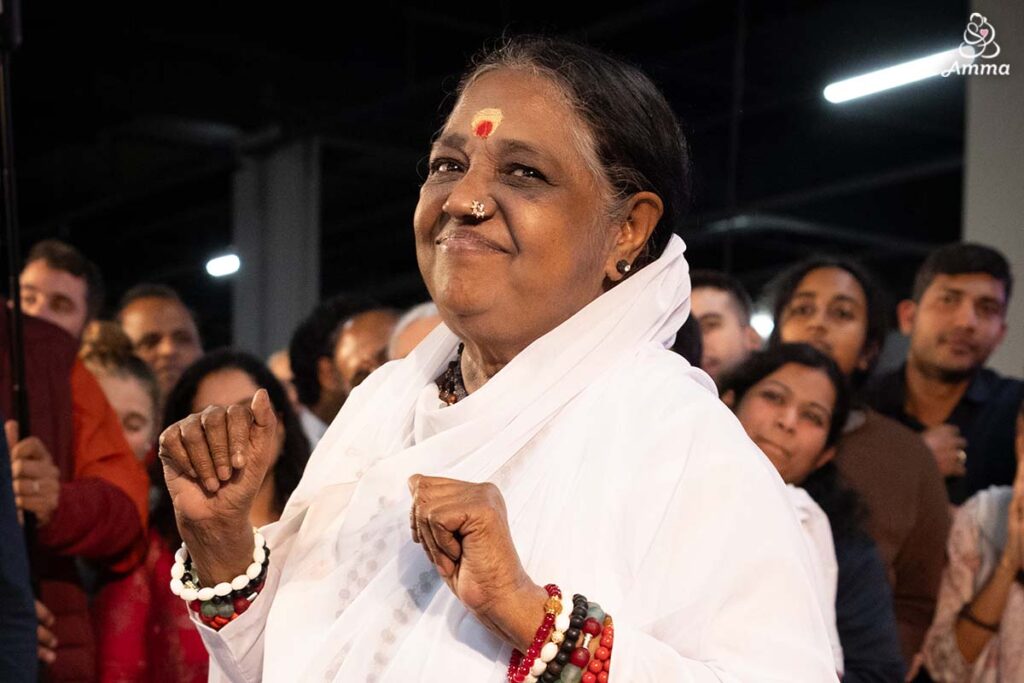Through an Amrita University internship, two American PreMed students, Roshan Nair (Siena College, New York) and Divya Ramachandran (Loyola University, Illinois), tackled the immense problem of substance abuse in Kerala. The students dedicated part of their summer break to meeting coastal and tribal people, discussing the dangers of addiction, and learning how their lives are affected by alcohol, drugs, and tobacco.
This was an opportunity for Divya and Roshan to take their medical knowledge out of the classroom and into real life. The students set a list of objectives and created a Powerpoint presentation on the dangers of alcohol addiction before setting out.
Project Objectives:
- Conduct a sample survey to study the
nature of the abuse. - Visit the fishermen families and tribal hamlets.
- Give awareness counselling to the family
members and students. - Hold awareness classes for the students in
different schools and hostels.
The duo began by holding Alcohol Awareness Camps for schoolchildren in Njaarackal, a poor coastal fishing village affected by the 2004 Indian tsunami. Roshan shared her experience:
“Though I was initially very nervous to teach the children, over time it felt less like we were going to the schools to hold classes and more as if we were going to meet, have fun with, and be inspired by children with powerful stories. At each of the three schools, all of the children were exceptionally curious about the topic at hand (alcohol awareness) and they asked us very striking and specific questions indicating that they had grasped the information well.
“At the end of each class period, the children understood that they could trust us, so many of the students spoke to us freely about their family problems. I was extremely moved by all of the stories that I heard: each one left a deep impression on me while constantly reminding me that the topics we were discussing were the harsh realities that these children faced each day. Even so, the students were bright, innocent, and full of love and life. They welcomed us to their schools and classrooms warmly… Little do the children know that at the end of each day, though we went to educate them, it was actually they who taught us.”
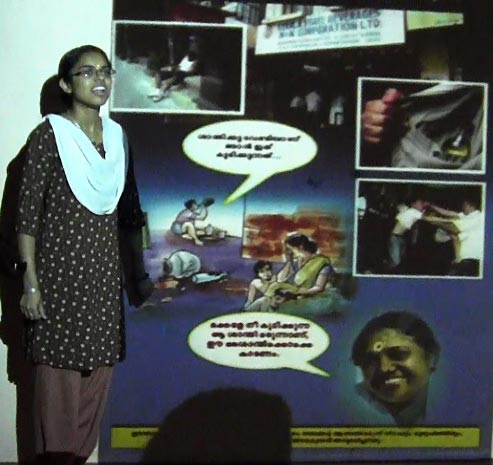
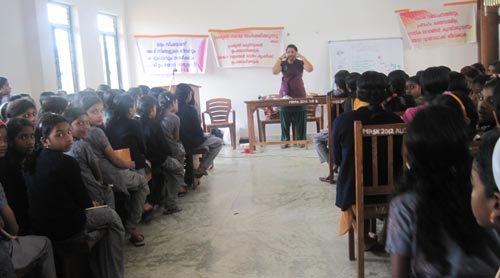
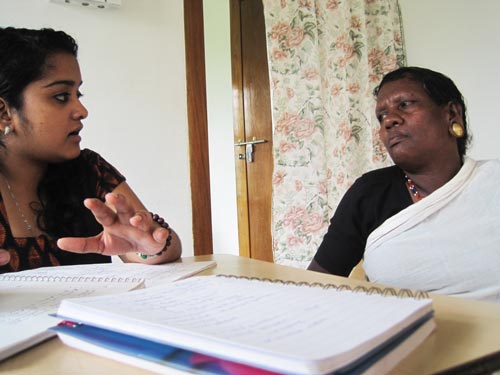
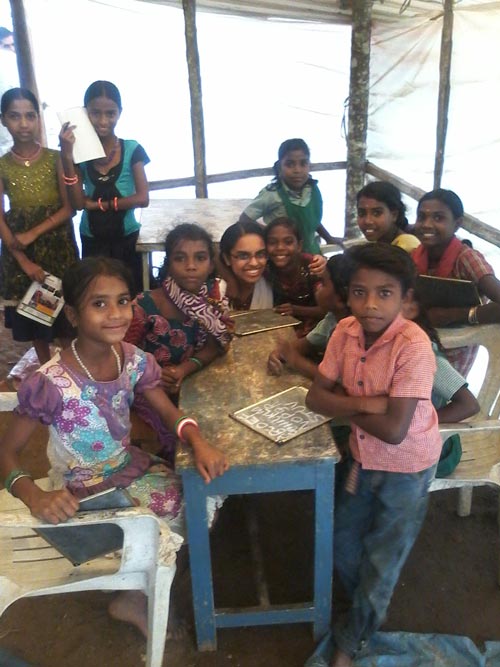
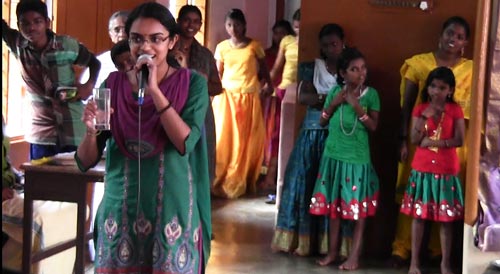
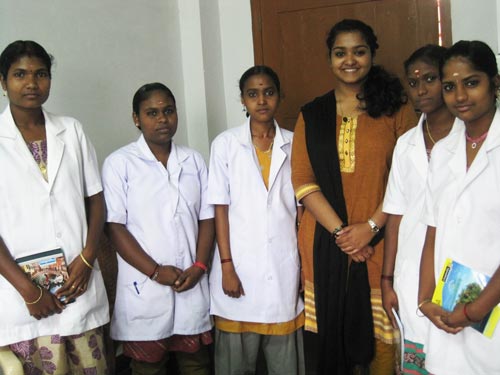
In addition to Njaarackal, Roshan and Divya also conducted awareness activities for patients and tribal health volunteers in a hospital, schoolchildren of various ages in their schools, and tribal community members attending free local medical camps throughout the district of Wayanad.
Commenting on this action packed experience, Divya shared her perceptions and what she had learned: “Throughout this exploration, I got to experience the hardships faced by the tribal community, which include the struggle for basic living conditions, lack of clean water supply, scarcity of food, difficulty in sustaining education for youth… and addiction to tobacco and alcohol. Seeing their difficulty, I felt defeated initially; however, I realized that the solutions to these issues are not as easy as it seemed. Before visiting the colonies, I thought the answer to the addiction issue was to simply advice them not to drink or chew tobacco. However, the problem is so deeply engraved into their community that though they recognize the problem, they have given up hope of recovery.
“The only solutions to this problem is to (get to) the roots, starting with individual families and focusing on women empowerment and increasing children’s awareness through education. Each colony welcomed us with full heart, and it was humbling to see how the poor treated us with respect. Although they lacked food and shelter for the day, they invited us into their fragile houses with upmost care and communicated their problems to us openly.”
Roshan also related, “In the past three weeks, I feel that I have learned more about life, the world, and myself, than I have in the past two years at college. I was able to experience and understand the pain and misery of the underprivileged tribal people who are addicted to alcohol and tobacco. Additionally, I saw on a daily basis, how these substances have torn families apart and destroyed their peace. In retrospect, I feel that perhaps Amma directed us to do this project to identify with their pain and understand how deeply rooted these problems are in their society. I am inexpressibly grateful to Amma for this invaluable opportunity.”
Their interactions with the rural villagers of Kerala gave them not only a better understanding of addiction but also a more profound empathy for and desire to serve people in need.


